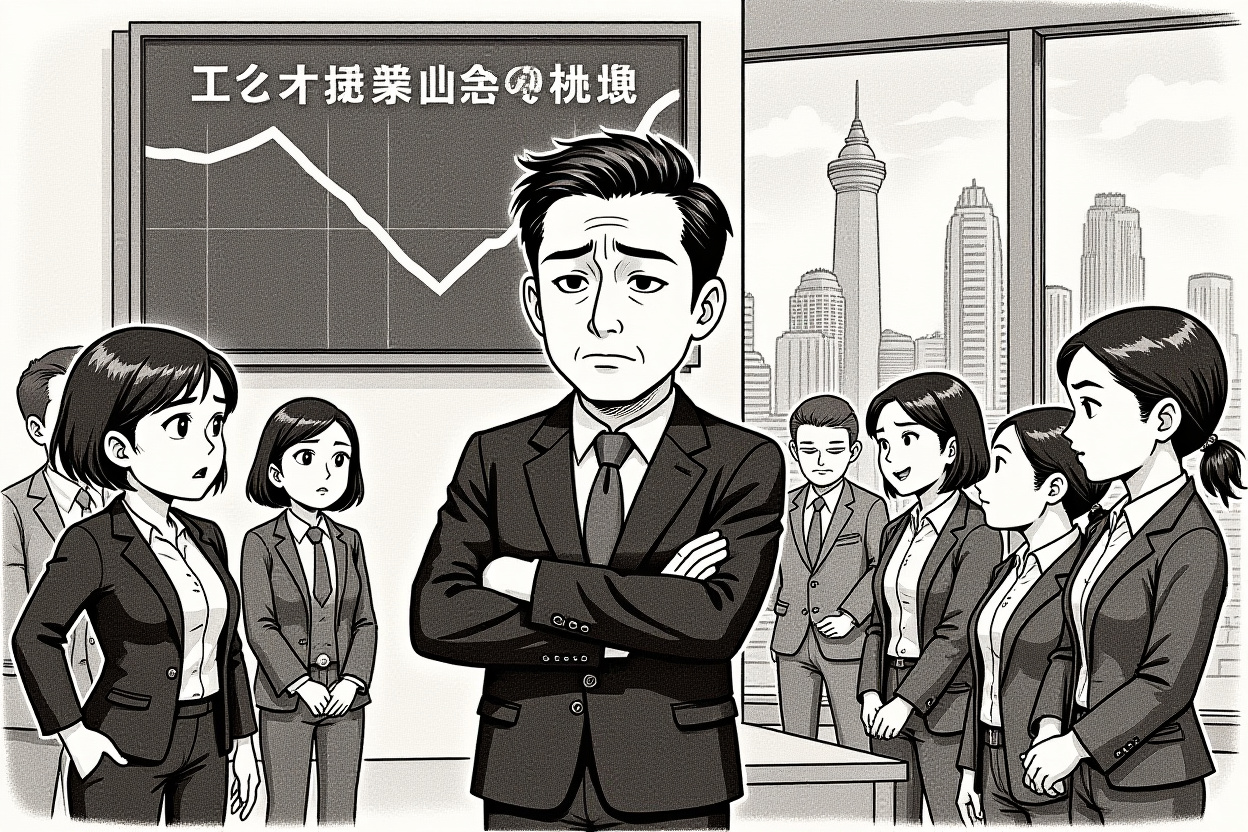The Sudden Reversal of a Major Shareholder Reduction Plan
In a surprising move that captured market attention, Yi Zheng (易峥), controlling shareholder and chairman of Tonghuashun (300033.SZ), abruptly canceled plans to reduce his holdings worth approximately $32 million (238 million RMB). The decision came just days after the company faced intense criticism from investors who labeled the reduction plan as an invitation for retail investors to ‘buy at the peak.’ This dramatic reversal highlights the delicate balance companies must maintain between shareholder interests and market perception during periods of significant stock appreciation.
The Initial Reduction Announcement and Market Backlash
Tonghuashun disclosed on September 5th that Yi Zheng planned to reduce his holdings by up to 684,000 shares, while another shareholder, Hangzhou Kaishishun Technology Co., Ltd. (凯士顺), intended to reduce up to 699,100 shares. At the September 9th closing price, these reductions would have amounted to approximately $32 million and $33 million respectively. The company’s justification that the reduction would ‘transfer market participation opportunities’ to other investors sparked immediate controversy and criticism across financial forums and social media platforms.
Price Action Following the Announcement
The market reaction was swift and negative. On September 8th, Tonghuashun’s stock price fell 4.95%, significantly underperforming the broader market. Professor Huang Jianzhong (黄建中) of Shanghai Normal University noted that major shareholder reductions are typically viewed as negative signals, and the stock’s decline reflected this market sentiment. The timing was particularly sensitive given the stock’s spectacular 239.25% rally from September 2023 to August 2025.
Historical Context of Shareholder Reductions at Tonghuashun
This recent controversy is not the first time Tonghuashun shareholders have executed substantial reductions during periods of high valuations. Three major shareholders have collectively cashed out over $2.8 billion (20 billion RMB) during the past year-plus of the stock’s impressive run-up, raising questions about insider confidence and valuation sustainability.
Major Shareholder Reduction Activities
Between December 2023 and February 2025, shareholder and director Ye Qiongjiu (叶琼玖) reduced holdings by 2 million shares at an average price of approximately $45.50 (318.87 RMB) per share, realizing approximately $91 million (636 million RMB). During the same period, Kaishishun reduced holdings by approximately 2.688 million shares at an average price of approximately $46.15 (322.72 RMB) per share, cashing out approximately $124 million (867 million RMB). Earlier, in June 2023, director Wang Jin (王进) reduced 2.5862 million shares at approximately $26.10 (182.48 RMB) per share, realizing approximately $67.5 million (472 million RMB).
The Kaishishun Ownership Structure
Kaishishun, originally known as Shanghai Kaishiao Investment Consulting Co., Ltd., has undergone multiple name changes and ownership restructuring. According to Tianyancha information, the entity had 44 shareholders during Tonghuashun’s IPO period but has since consolidated to just 7 shareholders, including several company executives and core employees. This concentration of ownership among insiders makes their reduction activities particularly noteworthy for market observers.
Valuation Concerns and Financial Performance
The timing of these shareholder reductions coincides with Tonghuashun reaching historically high valuations that some analysts consider difficult to justify based on fundamental performance. The company’s financial trajectory shows inconsistent results despite the stock’s dramatic appreciation, creating a complex narrative for investors evaluating the company’s true worth.
Earnings Performance During the Rally Period
Tonghuashun’s net profit declined throughout 2022 and 2023, with this trend continuing through the third quarter of 2024. Only after the September 2024 market rally did the company achieve full-year profit growth. For the first half of 2025, Tonghuashun reported revenue of $2.49 billion (17.79 billion RMB), representing 28.07% year-over-year growth, and net profit of $702 million (5.02 billion RMB), up 38.29% from the previous year. While these numbers appear strong, they must be evaluated against the backdrop of exceptional market conditions.
Current Valuation Metrics
At a market capitalization of approximately $262 billion (1.871 trillion RMB), Tonghuashun trades at a trailing price-to-earnings ratio of 95.3 times and a price-to-sales ratio exceeding 40 times. These multiples significantly exceed the software industry median P/E ratio of 82.21 times for comparable A-share companies. Professor Huang Jianzhong suggests that Tonghuashun’s current valuation exceeds reasonable levels given its growth prospects, noting that investors should carefully consider the signals sent by insider reduction activities.
Market Dynamics and Regulatory Environment
The Tonghuashun situation occurs within a broader context of evolving market regulations and increasing scrutiny of insider trading activities. Chinese regulators have been particularly attentive to shareholder reduction activities that might undermine market stability or disadvantage retail investors.
Regulatory Framework for Shareholder Reductions
China’s securities regulations require detailed disclosure of reduction plans, including timing, quantity, and method of reduction. Major shareholders must also provide rationale for their actions, though the ‘transfer market participation opportunities’ explanation offered by Tonghuashun represents a novel approach that regulators may examine more closely given the market reaction. The abrupt cancellation of the reduction plan suggests the company may have underestimated regulatory scrutiny and public response.
Market Sentiment and Retail Investor Protection
The negative reaction to Tonghuashun’s reduction plan highlights growing sensitivity around insider selling activities, particularly when companies use creative language that might obscure the true nature of the transactions. Retail investors increasingly view large-scale insider selling during price peaks as a negative signal about future prospects, regardless of the official justification provided.
Strategic Implications for Tonghuashun
The cancellation of the reduction plan and the surrounding controversy present both challenges and opportunities for Tonghuashun’s leadership. How the company manages this situation could significantly impact investor confidence and the stock’s performance in the coming months.
Corporate Governance Considerations
Yi Zheng’s decision to cancel the reduction plan after nearly 16 years without any share sales represents a significant moment for corporate governance at Tonghuashun. The company must now balance the legitimate financial planning needs of long-term shareholders with market expectations and perceptions. This episode may lead to more transparent communication strategies around shareholder liquidity events in the future.
Future Growth Prospects and Investor Relations
Despite the reduction controversy, Tonghuashun operates in the growing fintech sector with substantial opportunities for expansion. The company’s flagship products remain widely used among Chinese investors, and its data services business continues to show growth potential. However, maintaining investor confidence will require demonstrating that current valuations are supported by sustainable growth rather than market momentum alone.
Lessons for Investors and Market Participants
The Tonghuashun situation offers several important lessons for investors monitoring companies with significant insider selling activity during periods of rapid price appreciation. Understanding the context, timing, and communication around shareholder reductions can provide valuable insights into company prospects and management confidence.
Interpreting Insider Selling Signals
While insider selling doesn’t always indicate problems, patterns of large-scale selling by multiple executives during price peaks warrant careful attention. Investors should consider whether the company’s fundamental performance justifies current valuations and whether growth projections appear realistic. The concentration of selling among founders and early employees may carry different implications than selling by recently appointed executives.
Evaluating Company Communications
The language companies use to explain shareholder reductions can reveal much about corporate culture and management’s view of shareholder relationships. Phrases like ‘transfer market participation opportunities’ may be technically accurate but can create perception problems if investors interpret them as dismissive or misleading. Transparent, straightforward communication typically serves companies better during sensitive periods.
Looking Ahead: Market Implications and Investment Considerations
The Tonghuashun case reflects broader themes in China’s evolving capital markets, where retail investor sentiment, regulatory oversight, and corporate governance practices increasingly influence market dynamics. As Chinese companies mature and early investors seek liquidity, balancing legitimate shareholder needs with market stability will remain an ongoing challenge.
Sector Valuation Considerations
The software and fintech sectors in China have experienced significant valuation expansion in recent years, driven by digital transformation trends and strong market performance. Investors should carefully evaluate whether current multiples reflect sustainable growth trajectories or speculative excess. Companies trading at substantial premiums to sector averages may face heightened scrutiny during market corrections.
Long-term Investment Perspective
For long-term investors, the recent controversy at Tonghuashun highlights the importance of focusing on fundamental business quality rather than short-term price movements or insider trading patterns. Companies with durable competitive advantages, strong management teams, and reasonable valuations typically deliver better results over extended periods, regardless of temporary market dislocations or insider selling activities. Monitoring these fundamental factors provides a more reliable foundation for investment decisions than reacting to individual news events or trading patterns. Investors should maintain discipline around valuation parameters and avoid being swayed by market euphoria or excessive pessimism surrounding specific corporate actions.




